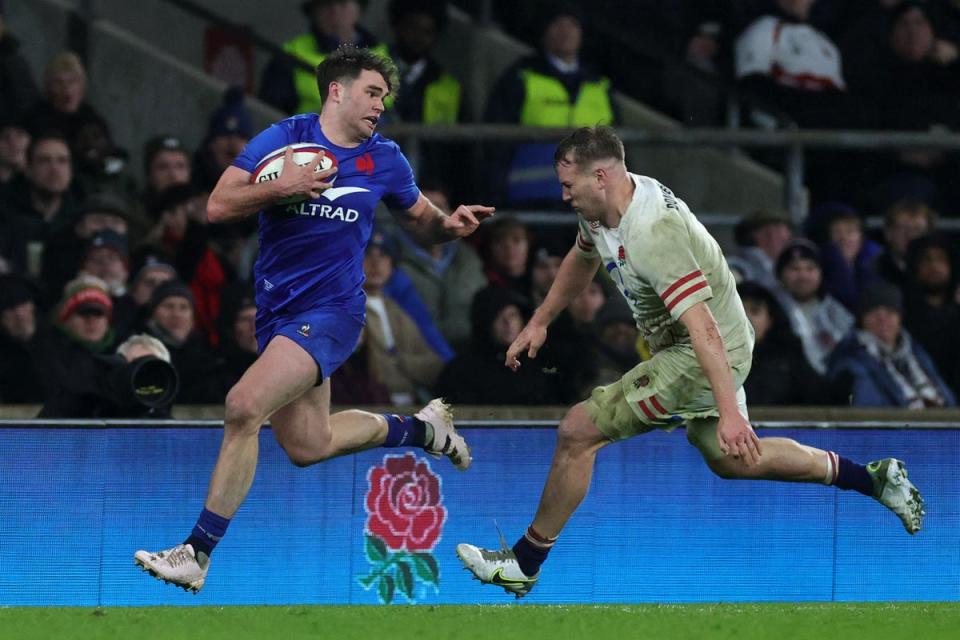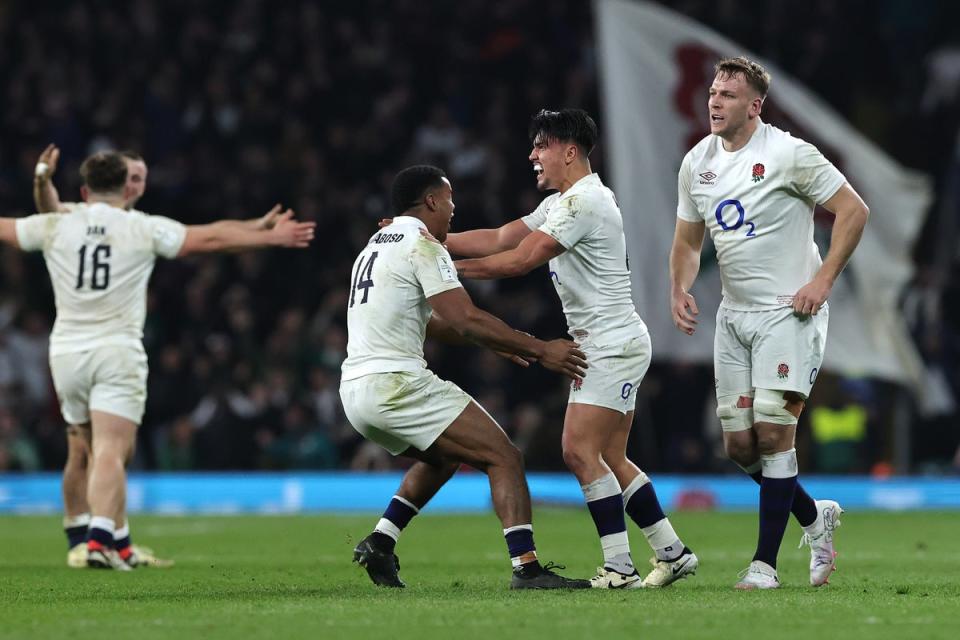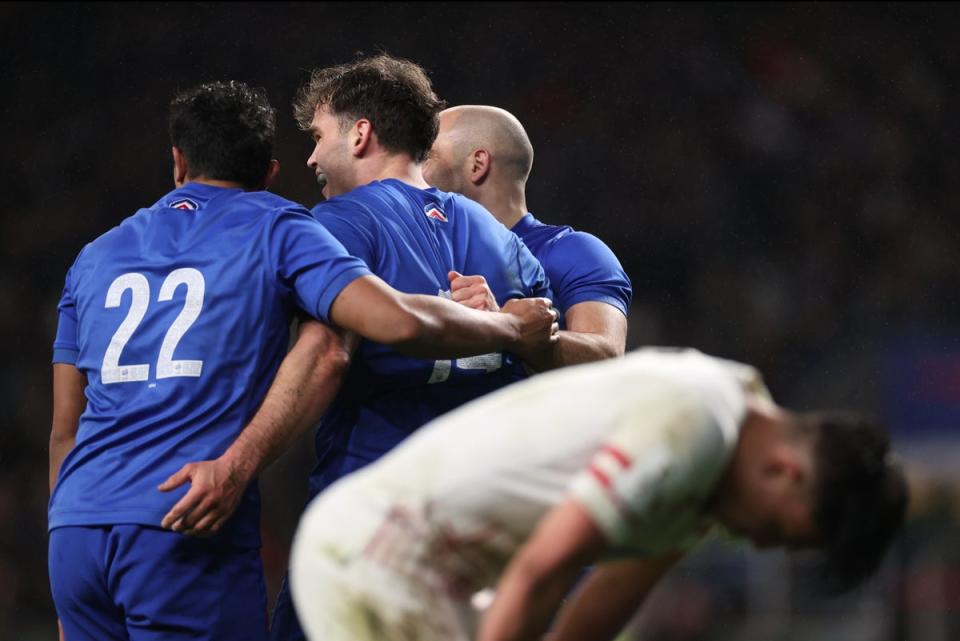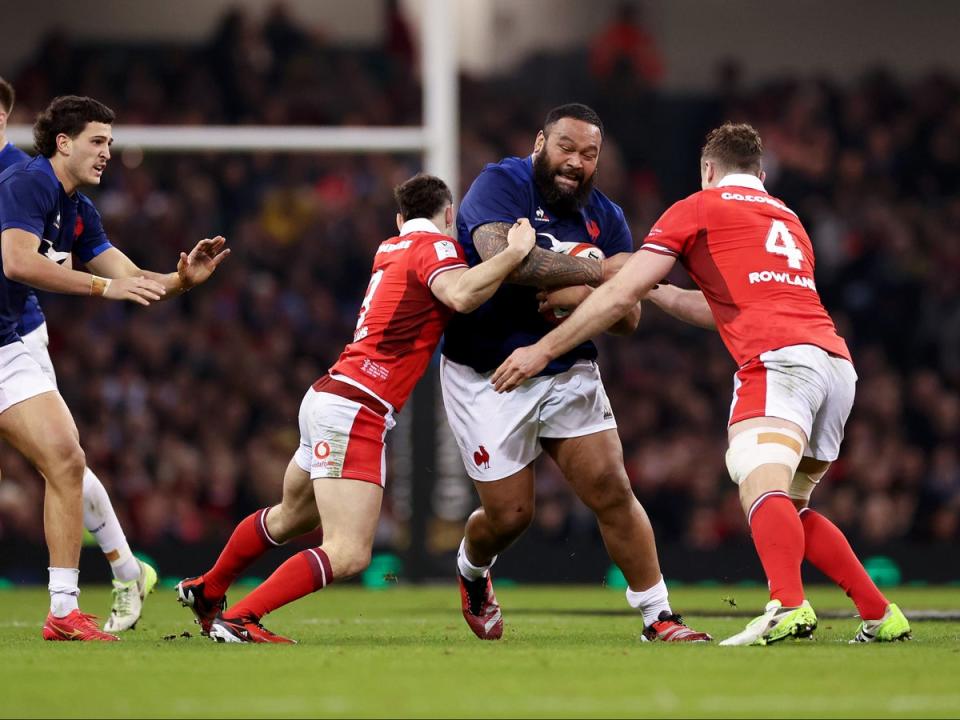How England can conquer France’s heavy artillery in Six Nations showdown

The city of Lyon, then Lugdunum, was a place of centrality in the story of the Roman empire, seized after the demise of Julius Caesar and established as the capital of the Gauls. Two emperors were born on the Fourviere hill that now overlooks this marvellous metropolis, one of the great sites of pilgrimage for gastronomes and gourmands, modern tendrils twisting away from the classical rues of the riverbanks.
It was here in the late 2nd century that one of the empire’s biggest, bloodiest battles occurred, Emperor Septimius Severus quelling the forces of usurper Clodius Albinus to at last establish calm after a period of extreme turmoil. Seeking something similar this weekend in Lyon is Steve Borthwick after England’s own period of unrest, the head coach building from the biggest win of his tenure so far and recognising an opportunity for another significant step forward.
England’s narrow victory over Ireland was proof of the process and progress that Borthwick is wanting from his team. For the first time since 2020, they will finish a Six Nations with more than two victories; regardless of how events in Dublin on Saturday impact upon their title ambitions, a record of four wins from five is a distinct possibility.

The win against Ireland was achieved utilising an approach most, understandably, felt would be foolish to employ against a side so eminent and excellent. It was not a case of England simply spoiling what their visitors wished to do but imposing themselves on the contest, playing with the pace, potency and precision more often associated with the men in green.
It will have swollen the confidence of a squad that, by Borthwick’s own admission, had been battling to see the tangible headway their coach had maintained they were making. “It is very important that we develop our style and that’s continuing to develop,” the head coach said on Thursday before flying to France. “It is always going to evolve each time we play and each time we come together for a campaign.
“It is a constant evolution rather than a revolution in terms of how the team plays. We’re starting to understand more about what works well in training to get the performances that we need and I am intent on us learning incredibly fast. You have got to fit the way that you play to the strengths that you have. We aim to be a little bit different this weekend. We’ve got to pose different questions to France than we posed to Ireland last week.”
The danger of getting ahead of themselves has been impressed upon England’s players this week, particularly preparing to face a side that put 53 points on them at Twickenham 12 months ago. France were simply untouchable that day, a brutal and brilliant ransacking of England’s home that showed Borthwick and his squad just how far the gap had grown.

The French side that England will encounter on Saturday night looks somewhat different to that side. Gone, of course, are the controlling halves; the maestro Antoine Dupont absent along with Romain Ntamack and Matthieu Jalibert. Nolann Le Garrec and Thomas Ramos have the flicks, tricks and fine array to sparkle but England will feel they have an advantage in terms of game management.
France remains a nation of rugby epicures but there was renewed simplicity to their preferred cuisine in Cardiff last weekend, the tight five bulls wearing down their Welsh counterparts in a relentless display of physicality. An unchanged starting set of forwards is again supported by six back-ups of elephantine proportions on the bench. Le Garrec, Damian Penaud and co will look to provide the sizzle and sauce to go with prime cuts of French beef.
“France had such incredible power in their team, in that pack, and it is hard to stop that power,” assessed Borthwick. “They have also got incredible pace in their backline. Depending on how you try and play against that, you are either dealing with the power or you are dealing with the pace. Tactically, we want to make sure we are on the money with what we do.”
The French phalanx will provide England with challenges on the gainline – they top the charts for dominant carry percentage in this year’s championship – but the breakdown may be the key battleground, the visitors authoritative in that regard last year. England are aided by having excellent ruck resourcers in Maro Itoje, Ollie Chessum and Jamie George but will know that they cannot afford to let the game slow and allow France to reload their heavy artillery.

This is the last stop on the travelling roadshow undertaken by the hosts while the Stade de France is being prepared for the Olympics. It would be fair to term the experiment as something of a disaster so far: a febrile Stade Velodrome brought back down to temperature by Ireland’s damp towel before Italy quietened the crowd in Lille. This is a last chance to keep the flickering flames of belief burning around a nation still coming to terms with the events of the autumn.
Ireland may well take care of the title before the first boot is put to ball in Lyon but a second-placed finish for either would feel like an achievement given how their campaigns appeared set to derail earlier in the championship.
For both sides, there will be time to chew over the gristle of their last Six Nations fixture, a gap before the summer tours in which both unions have plenty to sort. The prominence of this championship means that the flavour of this final fixture will still be on the palate for some time – and a bitter aftertaste really can linger.
